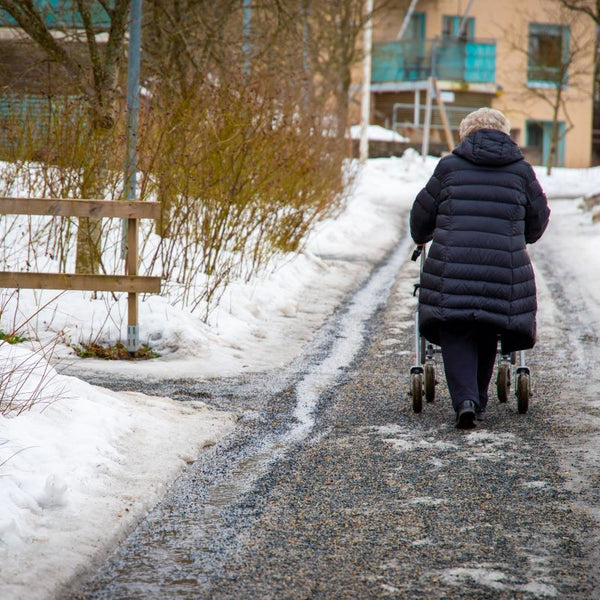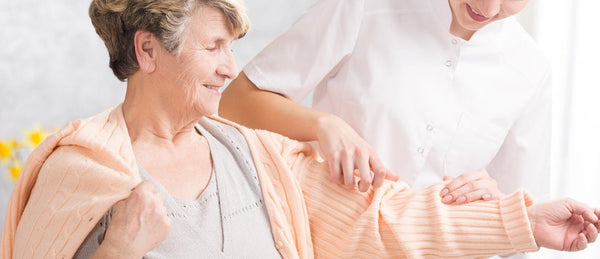According to a Carers UK report, around 6.5 million unpaid carers in the UK provide care for an elderly loved one, friend or neighbour. In addition, about 4.1 million people provide unpaid care to adults with long-term illnesses or disabilities. Providing care for a loved one can be a challenging and emotionally demanding experience, and many carers struggle with feelings of isolation, exhaustion, and stress.
In addition, carers often have to juggle multiple responsibilities, including managing household duties, providing emotional support, and caring for complicated healthcare and social support systems.
For those who are part of the sandwich generation, the burden of care can be even more challenging, as they are often responsible for caring for children and elderly parents. This can further impact their health, well-being, and finances.
Practical support for carers
Local councils are legally obligated to support carers who meet their eligibility criteria. This support can include practical help such as arranging respite care, providing assistive technology, or arranging for a personal assistant to help with the care recipient's needs.
An eligibility assessment will evaluate their needs and how caring responsibilities impact the carer. The assessment may include the carer's physical, emotional, and mental health, as well as their financial situation. The assessment also interprets the needs of the person being cared for and how the carer can balance their caring responsibilities with other aspects of their life.
The assessment is not a judgment of your abilities as a carer but rather a way to identify any support needs and provide them with the necessary resources and assistance.
The assessment is generally carried out by a social worker or another healthcare professional and can be requested by contacting the local council's elderly social services department.
Carer's assessment and how it can help
The carer's assessment can be taken with the help of the social services department in the area where the elderly person you are caring for lives. The evaluation is typically a face-to-face meeting with a trained professional. It can be carried out in your home or at the home of your elderly relative. If required, you can also take the assessment over the phone.
The council might send you a questionnaire to fill in before the assessment. If not, it's an excellent idea to take some time before the assessment to think about how caring for the elderly affects your life and what help is needed to make things easier for you. 
Financial support for carers
Carer's Allowance
Carer's Allowance is a government benefit available to people who spend at least 35 hours per week caring for an elderly relative. Carer's Allowance is paid at a rate of £81.90 per week (2023/24) and is usually paid directly into the carer's bank account every four weeks. The carer must also meet other eligibility criteria, such as being 16 years or older, not being in full-time education, and earning no more than £139 per week after deductions for taxes, after deductions including tax, national insurance and certain expenses.
However, it's important to note that Carer's Allowance is taxable, which may affect other benefits or tax credits the carer receives. Additionally, if the carer earns more than the earnings limit, their Carer's Allowance may be reduced or stopped altogether. It's also worth noting that receiving Carer's Allowance may entitle carers to other benefits, such as Council Tax Reduction or a reduction in their TV Licence fee.
It's a good idea for carers to check with their local council or a welfare rights organisation to see what other support they may be eligible for.
Carer's Credit
Carer's Credit doesn't get you additional financial help, but it is beneficial to protect pension rights. Claimants must care for someone for at least 20 hours per week. The credit allows them to keep caring responsibilities and contribute to their State Pension based on NI contributions. You can claim the Carer's Credit even if you have had a short break in caring. This can be up to 12 weeks.
Support from your employer
Many people are balancing their professional lives and caring responsibilities. You are not bound to inform your workplace about your caring responsibilities, but if you're an employee, your organisation should offer you certain legal privileges.
- As a carer, you can ask for flexible working hours, such as reduced work hours or work-from-home arrangements.
- If there are any emergencies, such as your elderly loved one falling ill or having an unexpected accident, you can request time off.
- Some organisations provide plenty of support to carers; you can speak to the HR department of your organisation to know more about this.
Carer’s leave entitlements in the UK
Under current UK employment law, employers are under no obligation to provide leave, either paid or unpaid, to those with caring responsibilities, outside of that particular employer’s annual leave policy. Some employers do already provide leave or flexible arrangements for carers, but there is currently no law compelling them to do so. However, there is expected to be a change introduced soon that will have a significant effect on this.
At the time of writing, there is not a confirmed date of introduction. However, once it becomes law, the Carer’s Leave Act will give all employed adults providing unpaid care to dependent family members an entitlement to one week of unpaid Carer’s Leave each year.
The leave will be available to employees from the first day of employment, which means that carer’s providing unpaid care will be able to take this time regardless of how long they have worked for that employer.
This entitlement is designed to be flexible and will be for anyone who personally provides or arranges care for a family member (or friend) and is not paid to do so. The aim of the change in legislation relating to carer’s leave entitlements in the UK is to help unpaid carers better balance their working life and caring responsibilities.
Charity and community organisations in your area
Caring for an elderly relative can be really overwhelming and can cause a lot of emotional stress. So, speaking to others who understand the issues carers can face is beneficial. Carers UK has details of local support groups and online forums where you can interact with other carers like you. Moreover, if you care for someone with Dementia, visiting the Alzheimer's Society online forum can be valuable.
Home care support for your elderly loved ones
You might need home care support for your elderly loved one if they are diagnosed with a medical health condition, such as Dementia. A professional home carer can help you with dealing with physically demanding responsibilities and help your elderly loved one feel calm and safe in their own home. Depending on the health condition and caring responsibilities, you can choose between a visiting or live-in carer. Having a carer for your elderly family member can help you cope with the physical and emotional stress.
However, caring for the elderly can impact your finances highly, so it can be beneficial to consider cost-effective methods such as emergency alarm for the elderly and dementia trackers to support your elderly loved one, especially if you cannot live with them all the time.
About TakingCare Personal Alarms
We offer peace of mind to our customers and their families through our 24/7 personal alarm service. In an emergency, our highly trained response service team is just the touch of a button away through devices such as GPS personal alarms and panic alarms.
We've supported over ¼ million people and their families with personal alarms.
If you would like to discuss what support is available to help you care for your loved ones, please get in touch - we're happy to talk and provide you with any guidance we can.
Advice and guidance
Our Independent Living Advisors are here to help you choose the most suitable emergency alarms for the elderly.




